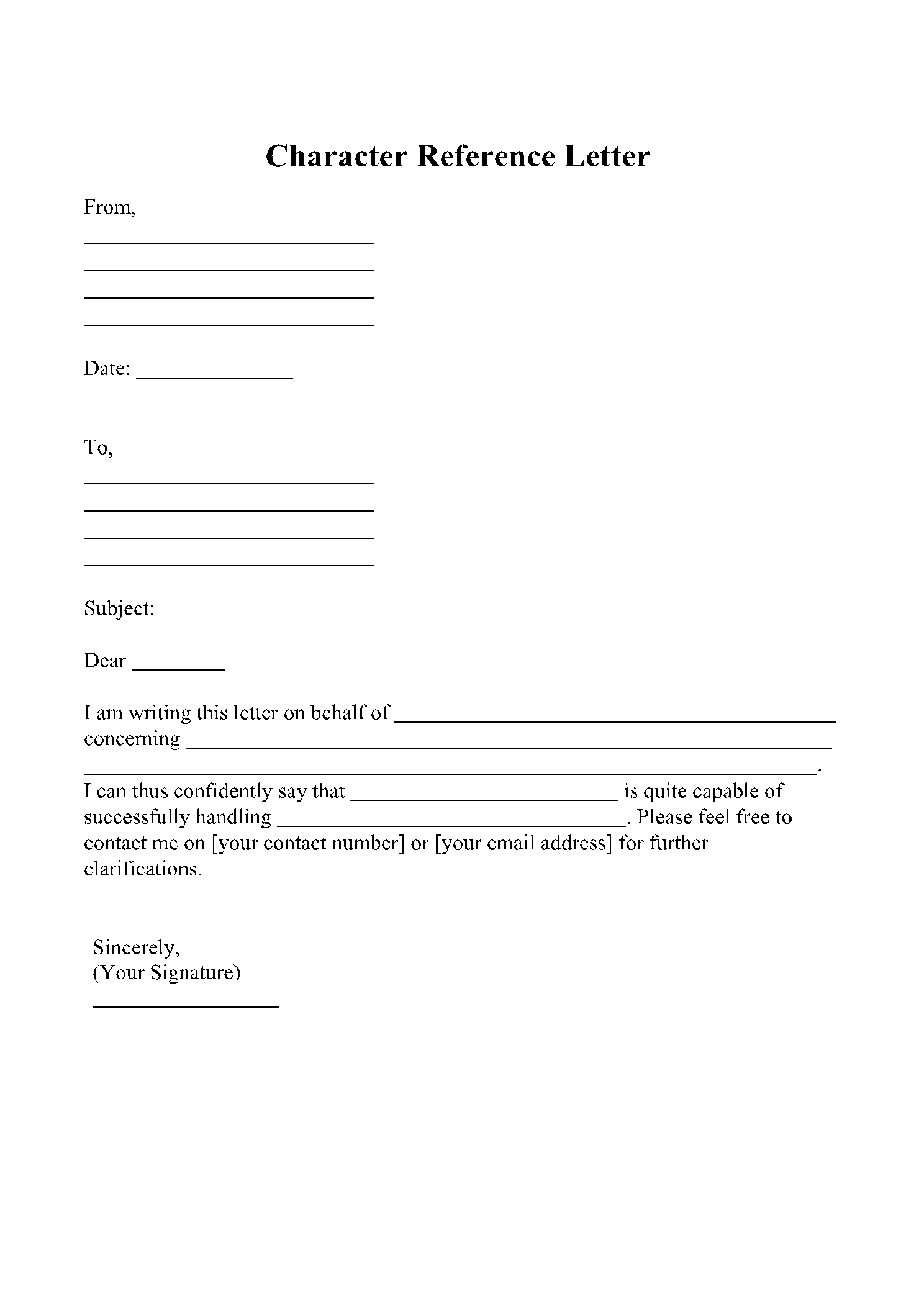The defendant’s character can sometimes play an important part during a court trial, mostly when it’s a custody case or a minor offense. In these cases, the Court will consider a character reference letter as a testimony of that person’s character and morals.
The character letter is usually written by family members, friends, neighbors, or employers, people who have spent enough time with the defendant so that they can vouch for their character. By the way, Cocosign have different templates for other kinds of letters of recommendation.
While showing a person’s moral qualities doesn’t mean they will be entirely forgiven for breaking the law, in some cases, it can help get a reduced sentence, especially if they have no previous criminal activity.
What Is a Character Reference Letter for Court?
When the accused is on trial, the Court is interested in finding out who they are, in the context of the illegal activities they are accused of. They need to receive an accurate description from the people who know the accused the best.
It’s the lawyer’s job to provide that information, so they will ask family and close friends to write down their honest opinion of the accused. That’s what the character reference letter represents, honest and accurate testimony of the character and moral values of the person standing trial.
When Do You Need a Character Reference Letter?
The Court needs to establish the character of the accused, to determine whether the offense was an exception, a mistake that they are unlikely to repeat. That matters when it comes to sentencing.
So, they accept character reference letters from people close to the accused, to get an idea of what they are like in their everyday life. This usually happens during custody trials or drunk driving accusations.
Not only does the character letter underline that person’s moral qualities, but it also mentions the extent to which a harsh sentence will affect their lives; how their career and family will suffer from a conviction. A well-written character reference letter for Court can really lean the balance in favor of the accused.
What Should Be Included in a Character Reference Letter for Court?
The character reference letter is a straightforward document, usually one page long. It should be clearly written and to the point, mentioning the most critical aspects.
If you’re not sure how to write a character letter for Court, it’s best to look for character letters for court templates to help you draft your letter. Here are the main elements it should include:
- You need to introduce yourself and mention how long you’ve known the defendant and what type of relation is between the two of you
- Why you think you should address the Court in this manner
- Paint a realistic picture of the defendant from your point of view, mentioning experiences you have shared or instances where you noticed their moral values. If it’s a character reference letter for child custody, testify to how much they love children and how well they can take care of them
- It helps to be as specific as possible; details have a more substantial impact than general statements
- End with a summary of your thoughts, your opinion on the defendant, and your intention behind writing the character reference letter
Conclusion
If you are asked to write a character letter for Court, you must make sure you treat it with seriousness and attention. Be as honest and transparent as you can, but also concise. Your character reference letter can help reduce your friend’s sentence, so make sure it’s well-written.
The best way to create an efficient document is with character letters for court templates. The one created by CocoSign is very efficient. They also offer many other useful and user-friendly templates for all sorts of documents.
Character Reference Letter FAQs
-
Who should the character reference letter be addressed to?
You must address the character letter for Court to the ‘Sentencing Magistrate’ or ‘Sentencing Judge,’ depending on the Court the defendant has to face. The Judge will appreciate the specific reference; it will prove that you are taking the matter seriously, and what they are reading isn’t just a general reference letter.
-
What is the worst mistake you should avoid when writing a letter of character?
The main thing to remember when you write a character reference letter is to stick to the point and that you shouldn’t make any suggestions regarding the sentencing. That will most likely annoy the Judge, and it’s not the purpose of the letter. Your only goal is to get the Judge to see the defendant from your point of view.
-
What do I write about myself in the character reference letter?
You need to add a few details about yourself before you start talking about the defendant. But don’t feel the need to add exceptional information, the Court only needs to know that you are a law-abiding citizen, so just mention where you live, what job you have, and any significant actions you performed in the community.
-
Who to select to write your character reference letter?
It has to be someone close to you, but not necessarily friends or family. It’s best to choose someone with a good social image, someone whose opinion the Court can consider trustworthy. It also depends on what you are on trial for.
For example, if it’s a DUI incident, you can choose an employer, who can testify to your seriousness and hard work, to show that your mistake was out of character.
-
Do character reference letters actually help in Court?
Yes, the Court really takes these letters seriously, as long as they are sincere and provide relevant information. They are an essential resource in establishing a person’s character, and many times they lead to a lighter sentence.
